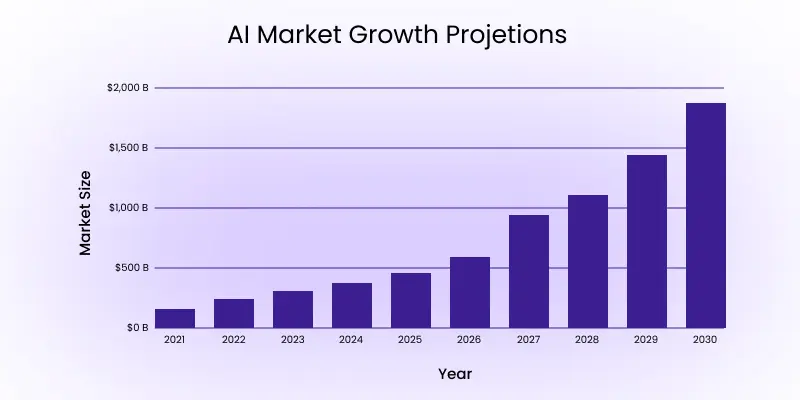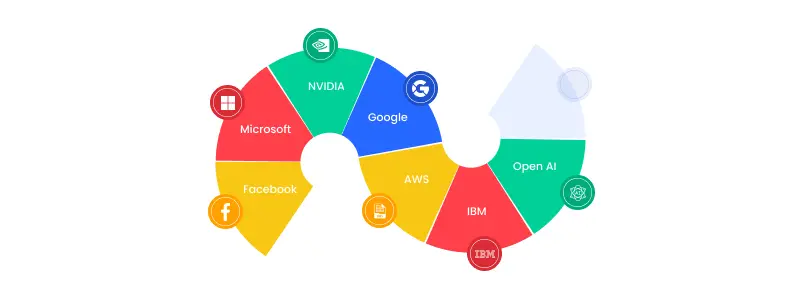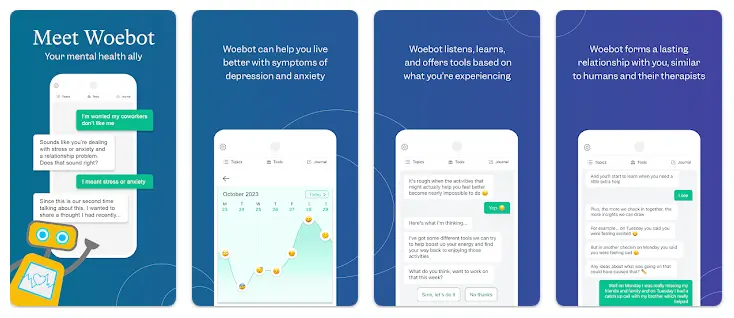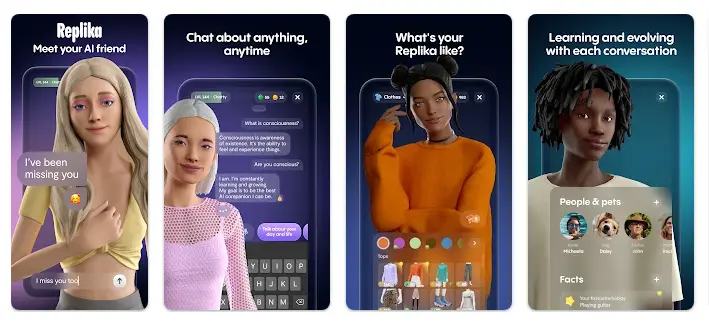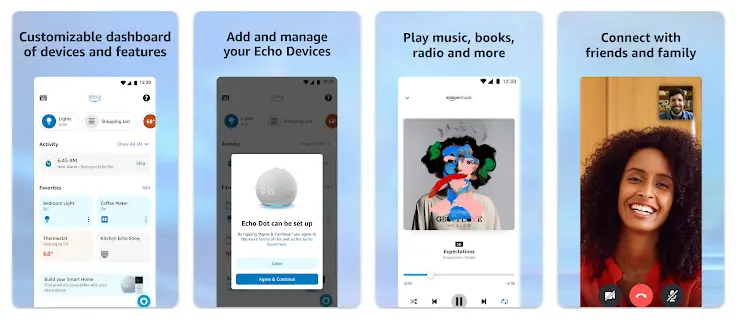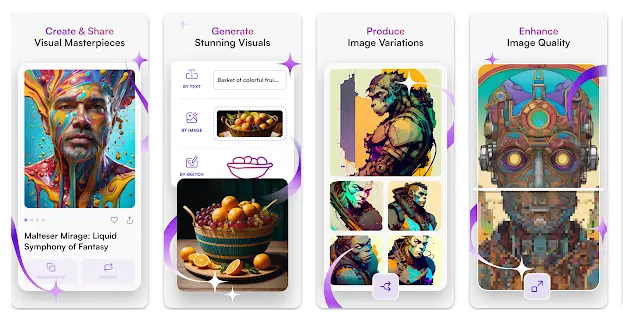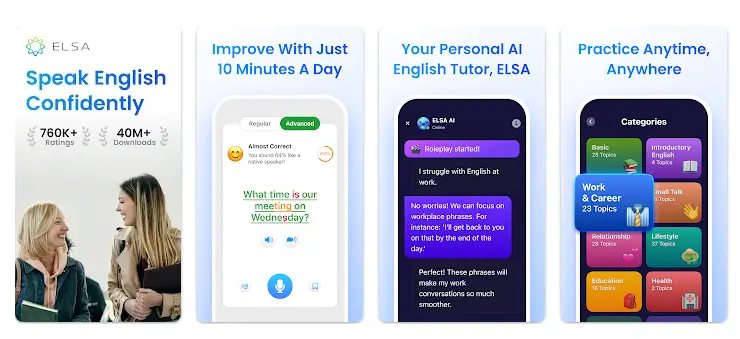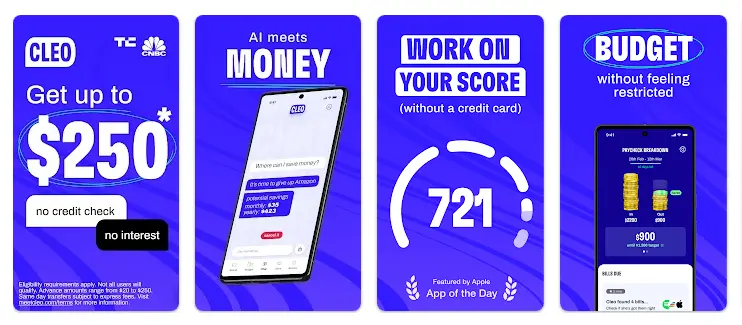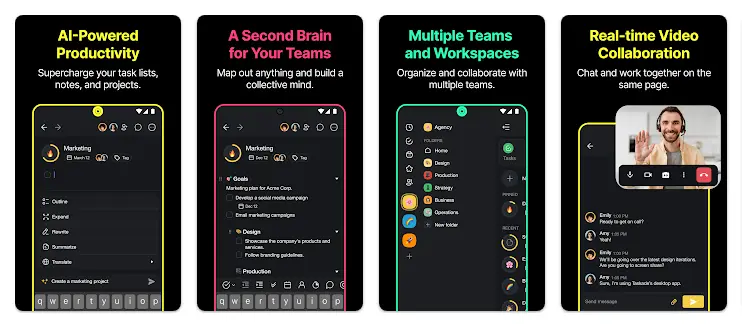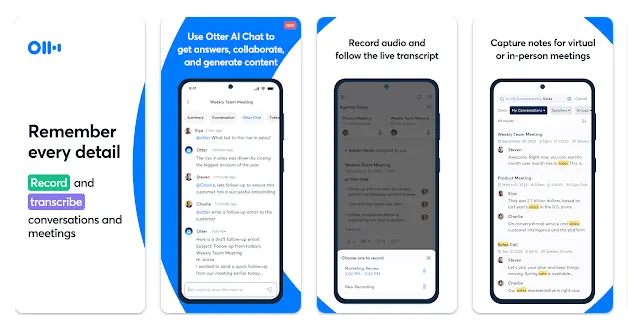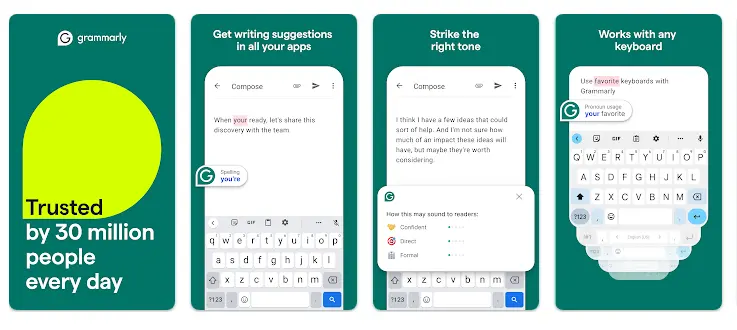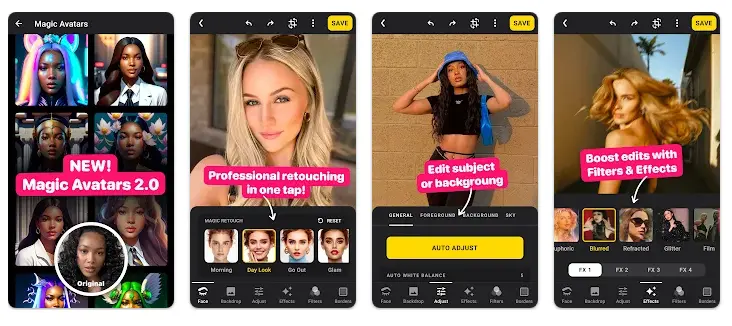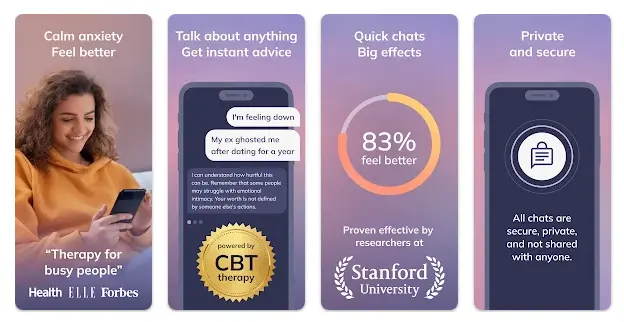What Are the Best AI Apps in the Market & How to Build One?
Artificial Intelligence is anticipated to contribute a whopping $15.7 Trillion approximately by 2030 to the global economy
The adoption of artificial intelligence is on high rise among organizations and is expected to grow at a higher rate. For reference, the market for AI apps stands currently at $200 billion and is expected to tenfold within the next ten years. Further, the rise in adoption is not limited to organizations but common people like you & me too.
As a result, a race in the market among top companies and innovative startups to build best AI apps has started. Even companies like Google, Facebook, Amazon, and Microsoft are in the race. If you are someone who is thinking to enter this game and take an early movers advantage, then this is a perfect time.
In this article, we will list best AI apps that are currently ruling the market. We will also cover what is artificial intelligence, how does AI work, how to build AI apps, along with the AI app development cost.
Table of Contents
- What is Artificial Intelligence?
- Artificial Intelligence Market 2024 – Detailed Analysis
- Top Generative Artificial Intelligence Market Players
- How does Artificial Intelligence Work? – Pattern Recognition from Data Sets
- Sub Fields of Artificial Intelligence that Helps an AI App Work
- Top 10 AI Apps
- How to Build AI Apps in 2024 – Easy 7 Step Guide
- Step 1 – Planning & Problem Identification
- Step 2 – Data Collection & Preparation
- Step 3 – Selecting the Algorithm
- Step 4 – Training the Algorithm
- Step 5 – Selecting the Right Tech Stack
- Step 6 – Final App Development
- Step 7 – Testing & Deployment
- What is the Cost to Build an AI App?
- Last Words – Top AI Apps
- Top AI Apps 2024 – Top FAQs
What is Artificial Intelligence?
In its most basic form, artificial intelligence is a branch of computer science that uses large, reliable datasets to help solve problems. The goal of AI is to solve cognitive tasks related to human intellect, like pattern recognition, learning, and problem-solving. Subfields of artificial intelligence, such as machine learning and deep learning, are frequently discussed in conjunction with one another.
These technologies’ algorithms are used to create expert systems that can categorize and forecast data depending on input. A wide range of fields are included in artificial intelligence (AI), including software engineering, statistics, data analytics, hardware, neurology, psychology, computer science, and philosophy.
Artificial Intelligence Market 2024 – Detailed Analysis
Global AI Market Size is anticipated to grow at 37.3% CAGR from 2023 to 2030
The world is betting high on artificial intelligence and its potential use cases over different industries, including automobile, finance, manufacturing, retail, healthcare, and more. In fact, the technology is expected to contribute more than $15.7 Trillion to the world economy by 2030, which is more than the output of India and China combined. Just for comparison, the market for just AI-based voice assistants stands currently over $3.8 billion and is anticipated to surpass $54 billion by 2033.
Top Generative Artificial Intelligence Market Players
- Microsoft
- NVIDIA
- AWS
- IBM
- Open AI
How does Artificial Intelligence Work? – Pattern Recognition from Data Sets
Artificial Intelligence is a subset of deep learning and machine learning and it can be a key component of these methodologies. Artificial Intelligence majorly operates by discovering patterns from large data sets and then taking the necessary actions based on the patterns. Large volumes of data can be gathered using an intelligent and iterative collection procedure, which the AI tool then uses to identify patterns. Using the patterns it has learned, the AI model then makes an outcome prediction.
The process of developing the AI model involves numerous iterations, each of which is used to evaluate the model’s performance and gauge its degree of accuracy. Due to its powerful computing capabilities, it can process massive volumes of data rapidly. AI gives a computer the ability to solve issues on its own.
Sub Fields of Artificial Intelligence that Helps an AI App Work
Artificial Intelligence is a subset of deep learning and machine learning and it can be a key component of these methodologies. Artificial Intelligence majorly operates by discovering patterns from large data sets and then taking the necessary actions based on the patterns. Large volumes of data can be gathered using an intelligent and iterative collection procedure, which the AI tool then uses to identify patterns. Using the patterns it has learned, the AI model then makes an outcome prediction.
The process of developing the AI model involves numerous iterations, each of which is used to evaluate the model’s performance and gauge its degree of accuracy. Due to its powerful computing capabilities, it can process massive volumes of data rapidly. AI gives a computer the ability to solve issues on its own.
Top 10 AI Apps
| App Name | Downloads | Ratings | App URL |
| Chat GPT | 50M+ | 4.8 | Android | iOS |
| Woebot | 500K+ | 4.0 | Android | iOS |
| Replika | 10M+ | 3.7 | Android | iOS |
| Alexa | 100M+ | 4.3 | Android | iOS |
| Starry AI | 1M+ | 4.2 | Android | iOS |
| ELSA Speak | 10M+ | 4.6 | Android | iOS |
| Cleo | 1M+ | 4.1 | Android | iOS |
| Taskade | 500k+ | 4.4 | Android | iOS |
| Otter | 1M+ | 4.3 | Android | iOS |
| Grammarly | 10M+ | 4.0 | Android | iOS |
| Lensa AI | 10M+ | 4.1 | Android | iOS |
| Youper | 1M+ | 4.0 | Android | iOS |
ChatGPT
ChatGPT is one of the most popular AI tool in the market. The software crossed 1 million users within 5 days. The official ChatGPT app has met and above our expectations, providing a clear, user-friendly interface that is concentrated on the conversation experience, even if the market is still flooded by lookalikes.
You can use speech-to-text, text, photo uploads, voice-to-text, or a brand-new beta feature called Voice Conversations to engage with it however you see appropriate. This function is great for when you’re on the go because it allows you to speak to the app and have it respond to you voicefully.
WoeBot
WoeBot AI provides CBT exercises with AI-powered chat and tailored recommendations to elevate your mood and lower anxiety.
Even though Woebot is an AI, many of its users have noticed how effectively it handles empathy in conversations—a critical skill for having such essential conversations—and the fact that Woebot is absolutely free.
Woebot is renowned for being upbeat, adept at combining humour, psychology lessons, and personalised, actionable insights, in addition to being a superb conversationalist.
Replika
With the help of the conversational AI app Replika, users may have natural-seeming interactions with a virtual companion. Replika can be set up to function as a love interest, friend, or mentor on a personal or professional level.
That isn’t all, though. Even better, you can utilise augmented reality to virtually share occasions with their Replika. The software works by spotting a 3D avatar of your Replika in the scene using the camera on your iPhone (see more). Oculus, Android, and iOS devices can all use the software. Look for the app on the Apple App Store or Google Play Store.
Alexa
Alexa, Amazon’s AI based voice assistants, rose to fame after its launch in 2014. This useful AI tool allows you to do a lot of things, like build lists, set alarms, and make online purchases. Because of her strong natural language processing abilities, Alexa can both understand and produce spoken words in casual discussions with people. With the help of smart device pairing, users can control TVs, wearables, smart thermostats, and even cars from their phones.
Amazon disclosed in 2023 that it will be able to recognize more conversational phrases in the future thanks to a new big language model.
Starry AI
A straightforward word search may be transformed into an artwork using StarryAI, an artificial intelligence art generator. For this, the software uses two AI models. The first uses generative adversarial networks, or GANs, a unique kind of machine learning model, to render the artwork creations. The second technique uses steady diffusion to produce images and artwork. One of the many text-to-image converters on the market today is StarryAI, which enables users to produce NFTs and AI avatars.
ELSA Speak
ELSA Speak is an artificial intelligence-powered English language AI based voice assistants designed to help users become more fluent in the language. Using speech data and voice recognition technology, the software can analyse a user’s accent and use a color-coded system of red, yellow, and green to determine how close the user pronounced a given word. It can also provide suggestions for how the user might improve. The app offers progress tracking, customized curriculum, language competence assessments, and one-on-one instruction.
Cleo
An artificial intelligence assistant named Cleo assists users with personal financial management tasks like creating personal budgets, setting aside money, steering clear of particular types of purchases, and taking out loans. Additionally, Cleo gives customers the option to be “roasted” or “hyped” for their spending habits and how well they align with their overall objectives, adding a human element to the personal financial experience. The software generates personalized messages and offers basic financial advice using artificial intelligence and natural language production.
Taskade
The goal of the workflow management app Taskade is to be your AI assistant, increasing productivity. With the help of GPT-4, the software can automate more than 700 tasks related to support, sales, marketing, and other areas.
Along with many other capabilities, it offers all-in-one task tracking, dozens of pre-built prompt and workflow templates, and collaboration tools.
Other users remarked that switching between the desktop and mobile apps is simple and doesn’t feel restrictive. Users further observe that the platform’s ability to chat, video conference, and leave comments is a helpful tool for maintaining team collaboration on projects.
Otter
Otter is exceptional at accurately transcribing meeting or lecture notes, recordings, and more. With only one tap, you can record and transcribe. It will also provide you with real-time notes that you can search, share, highlight, and add images to.
While some transcripts may not be flawless, Otter uses artificial intelligence to enhance them, identify speakers, create word clouds or summary keywords, and provide an automatic meeting summary.
Grammarly
With the aid of Grammarly Keyboard, an AI-powered writing tool, you can enhance and correct your vocabulary, grammar, spelling, and punctuation. In addition to other elements that aid in better communication overall, the app has a synonym search feature that improves spelling and vocabulary. You can add a personal dictionary and change the light and dark themes on your keyboard. Advanced capabilities including tone and clarity changes are available to premium users.
In order to provide better writing experiences, the Grammarly Keyboard provides real-time suggestions for identifying and correcting grammar, spelling, and punctuation errors. It also works seamlessly with your favourite apps and improves connections with tone analysis.
Lensa AI
A flexible photo-editing tool for portrait selfies is Lensa AI. It makes editing easier by providing a variety of filters and intuitive tools. Excellent for high-end photos, it has eye correction, skin refining effects, and an illustrator editor. The software is a great option for photo enthusiasts because it includes a background editor in addition to other capabilities like color adjustment and art tools.
Your portraits can become realistic and imaginative avatars in a variety of art genres with Lensa AI’s AI technology. It’s ideal for gaming, social media, and original artwork.
Youper
Youper is an engaging AI tool for cognitive behavioral therapy that aims to improve mood, reduce anxiety, and strengthen bonds with others. It makes use of scientifically validated Cognitive Behavioral Therapy methods to provide useful exercises for stress reduction, emotional regulation, and clear thinking. Youper, created by therapists, offers convenient CBT that fits with your schedule.
It’s perfect for people looking to improve their relationships, motivation, improved coping mechanisms, and mental wellness. Youper assists you in monitoring your mental well-being, spotting trends, and picking up new coping mechanisms. It’s similar to carrying a therapist around with you!
How to Build AI Apps in 2024 – Easy 7 Step Guide
Step 1 – Planning & Problem Identification
Prior to developing an AI app, identify the issue that has to be resolved. Think about the operations and procedures of the application where you intend to apply the AI stack. What outcome ought one to anticipate from it? In what way will you gain? You can begin developing the product requirements when you have determined the issue and the concept. Developers are able to identify technologies and tools that will support them in producing products by understanding the goal of the requirement analysis.
- Choose the technical and non-technical team members
- Talk to experts about your work schedule
- Investigate the data that will be needed to create an AI/ML model
Step 2 – Data Collection & Preparation
AI-powered applications are data-driven and usually need a lot of data to work well. To construct an accurate data model, however, the data must first be properly collected and prepared. The gathered data can be labeled by an AI labeling team of experts with ML-based software solutions. These software engineers prepare the data for future usage by thoroughly examining the sources and input data.
Next, ensure that there are no errors, missing values, or erroneous labels in the input data.
Step 3 – Selecting the Algorithm
One of the most crucial and fundamental steps in developing an AI system: selecting the appropriate algorithm. The underlying ideas involved in choosing the best algorithm for the job at hand must be understood, even when the technical details can be complicated. Depending on the type of learning, the algorithm might take on several forms. Supervised and uncontrolled learning are the two primary categories of learning.
To create a reliable AI system, selecting the appropriate algorithm is essential. You can make sure that your AI system can precisely and successfully tackle the given problem by being familiar with the different algorithms and by grasping the basic ideas of supervised and unsupervised learning.
Step 4 – Training the Algorithm
Verifying the accuracy of an algorithm after selection requires training. It is crucial to make sure the algorithm operates within the selected framework by training and retraining it until it reaches the required accuracy, even though you cannot set any standard metrics or threshold to ensure model accuracy. An AI system’s effectiveness is entirely dependent on the performance of the data since it is data-centric. Thus, a sufficiently diversified set of data is anticipated to enable the model to function as intended.
Thus it makes sense and is a necessary step to invest time and resources in training the algorithm. Consequently, this will lead to enhanced productivity, financial savings, and a competitive edge.
Step 5 – Selecting the Right Tech Stack
The development of an AI solution requires a well-defined set of requirements. To assist construct user-friendly AI systems that provide a rich experience, the appropriate technology and AI programming language must be chosen. Programming languages come in a variety of forms, each having advantages and disadvantages. You need to choose one that suits best to you.
We frequently use a wide range of frameworks and APIs while developing AI apps in order to quickly and easily design intelligent AI algorithms. Deep learning, neural networks, and natural language processing (NLP) applications are pre-integrated into these frameworks and APIs. These AI platforms and APIs, which are offered by almost all major cloud platforms for AI, provide the easy implementation of pre-made solutions for language, image, and speech recognition as well as the provision of high-level abstractions of intricate machine-learning algorithms.
Step 6 – Final App Development
With the exception of CRISP-DM, developing an AI-driven software application is comparable to developing other types of software. The stages listed below are essential to the development of AI:
- The solution’s architectural design
- The user interface’s design
- Development of frontend and backend
Additionally, you can enhance functionality, optimize efficiency, and modify the product for updates while it is being developed.
Step 7 – Testing & Deployment
With the assistance of QA engineers, you must test the product after the development phase is complete. They have access to manual, automated, and hybrid tools. Delivering the app is only possible if it has undergone extensive testing and performs as anticipated. The product has to be deployed to the production server after testing is complete.
The support staff provides routine maintenance for your system after deployment to stop data drift. AI maintenance is distinct in that it necessitates constant idea and data changes. This will guarantee that frequent updates such as security patches and version changes don’t erode the accuracy of your algorithm.
What is the Cost to Build an AI App?
An AI mobile app development cost might vary from $10,000 to $75,000, depending on the level of customization and app needs. However, there are a number of variables, such as features and complexity that might affect the starting cost of bespoke app creation. Functionality, development style, and other factors may also play a role.
The number of hours required for each step of the development process is multiplied by the billing hours of resources to get the total cost of creating an AI app.
| Region | Average Cost |
| India | $20-40/hr |
| United States | $80-170/hr |
| Ukraine | $30-100/hr |
| Australia | $80-200/hr |
| Russia | $60-150/hr |
Last Words – Top AI Apps
So, this was all about the top artificial intelligence applications and how to build an AI app in detail. Apart from this, we have also covered the definition of AI, how does AI work, artificial intelligence market analysis, and the AI app development cost. Note since AI is new in the market and not many people are equipped with the required skills to build an AI app, it is advisable to hire a reliable, well established AI mobile app development company. Here is the list of top AI development companies for your reference.
Top AI Apps 2024 – Top FAQs
What is Artificial Intelligence?
Artificial intelligence is a branch of computer science that uses large, reliable datasets to help solve problems. The goal of AI is to solve cognitive tasks related to human intellect, like pattern recognition, learning, and problem-solving.
What is the cost to build an Artificial intelligence application?
The cost to build an AI app varies between $10,000 and $75,000, depending upon several factors. The most important factor here is developers per hour price which also varies on skills, experience, and location.
What is the time required to build an Artificial Intelligence app?
The time required to build an AI app depends upon the requirements and project needs. The average time to build artificial intelligence apps is 3-9 months but it can go higher or lower.

